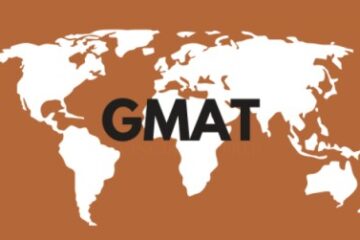TAQA and CAVA Qualifications: A Guide to Assessing Competence in the Workplace

Introduction:
In today’s dynamic and competitive job market, professional qualifications play a crucial role in shaping one’s career and ensuring competence in specific fields. Two such qualifications that have gained prominence in the realm of assessment and quality assurance are the Training, Assessment, and Quality Assurance (TAQA) and the Competence Assessor and Verifier Awards (CAVA). This blog CAVA and TAQA aims to provide a comprehensive overview of these qualifications, exploring their significance, key components, and the impact they can have on individuals and organizations.
TAQA Qualification:
The TAQA qualification, which stands for Training, Assessment, and Quality Assurance, is designed for professionals involved in assessing vocational qualifications. Whether you are an assessor, internal quality assurer, or a manager responsible for quality assurance processes, TAQA provides a structured framework to enhance your skills and understanding of assessment practices.
Key Components of TAQA:
1. Unit 301: Understanding the Principles and Practices of Assessment:
This unit focuses on the principles and practices that underpin assessment, covering topics such as assessment planning, different assessment methods, and feedback strategies. Understanding these fundamentals is crucial for anyone involved in the assessment process.
2. **Unit 302: Assess Occupational Competence in the Work Environment:
This unit is tailored for those who assess occupational competence in the workplace. It covers practical skills like observing performance, questioning, and examining evidence to ensure that individuals meet the required occupational standards.
3. Unit 303: Assess Vocational Skills, Knowledge, and Understanding:
This unit delves into assessing vocational skills, knowledge, and understanding. It helps assessors understand how to effectively evaluate a learner’s grasp of theoretical concepts, practical skills, and overall understanding within a vocational context.
CAVA Qualification:
The Competence Assessor and Verifier Awards (CAVA) is another qualification designed for professionals involved in assessing competence within the workplace. CAVA focuses on both assessing individuals and verifying the assessment process.
Key Components of CAVA:
1. Unit 1: Understanding the Principles and Practices of Assessment:
Similar to TAQA, CAVA starts with a unit that covers the essential principles and practices of assessment. It provides a foundational understanding of the assessment process and its importance in maintaining quality standards.
2. Unit 2: Assess Occupational Competence in the Work Environment:
This unit mirrors TAQA’s Unit 302, emphasizing the assessment of occupational competence within a real work environment. It includes practical aspects such as observation, questioning, and gathering evidence.
3. Unit 3: Assess Vocational Skills, Knowledge, and Understanding:
This unit corresponds to TAQA’s Unit 303, focusing on the assessment of vocational skills, knowledge, and understanding. It provides assessors with the skills needed to evaluate learners across various vocational contexts.
4. Unit 4: Internal Quality Assurance of Assessment:
CAVA extends its scope by including a unit dedicated to internal quality assurance. This unit equips individuals with the skills to internally verify assessment processes, ensuring consistency and adherence to standards.
Conclusion:
Both TAQA and CAVA qualifications are valuable assets for professionals engaged in assessment and quality assurance within the workplace. Whether you are an assessor, internal quality assurer, or manager, these qualifications offer a robust framework to enhance your skills and contribute to the overall improvement of assessment practices. By obtaining these qualifications, individuals not only validate their competence but also contribute to the development of a skilled and qualified workforce, benefitting both individuals and organizations alike in the ever-evolving landscape of vocational education and training.
Leave a reply
You must be logged in to post a comment.









